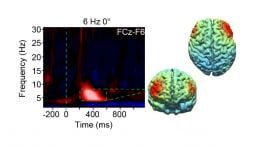
While testing is ramping up to detect COVID-19, deceptive info is circulating social media about how — and whether — the tests detect the virus. A growing variety of persons are telling tales about themselves by plotting knowledge that documents their job seeking success, sleep cycles, health and even once they inform lies. New analysis suggests greater than 20 per cent of coronavirus circumstances are being missed by testing — often known as “false negatives” — with one expert saying the outcomes may require a rethink of Australia’s COVID-19 methods. Humans have accessed more than two-thirds of the Antarctica and the proportion of places not impacted by people is shrinking, say researchers who are calling for larger safety of wilderness areas.
The Trump administration suggests deploying the National Guard to ensure well timed knowledge sharing into a brand new, centralized database. Reports of the infection—together with one demise this month—lately shook up social media.
Coronavirus News Roundup, July 11-july 17
We raise our funds each year primarily from people and foundations. On the X-axis (from left to right), we rank sources by their elementary trustworthiness. Media outlets within the green column produce scientific content that’s based mostly on evidence and is largely freed from ideology. Sources in the purple column, then again, are driven by ideology and are characterized by lopsided reporting.
Claudia Fischbach of Cornell University and colleagues create beautiful pictures, such because the one here, using a brand new collagen-embedded multicellular spheroid platform. The study explores the connections between tissue microenvironment and obesity, which may have significant implications for breast cancer malignancy in overweight sufferers.
Why Scientists Are Eavesdropping On A Rainforest In Indonesia
But, in contrast to COVID-19, plague is a disease that international locations have roughly got beneath control. Images of the new phenomenon were captured by Solar Orbiter, a joint European-NASA mission to check the solar. Usually a fish breaks records because of its size, but a current southern bluefin tuna caught in the waters off the far-south coast of NSW excites scientists due to its age.
